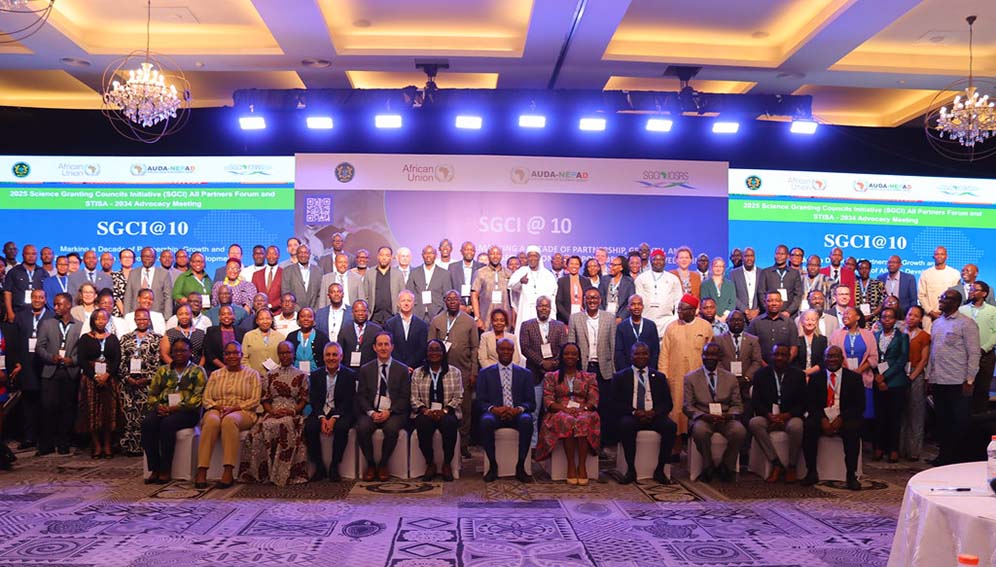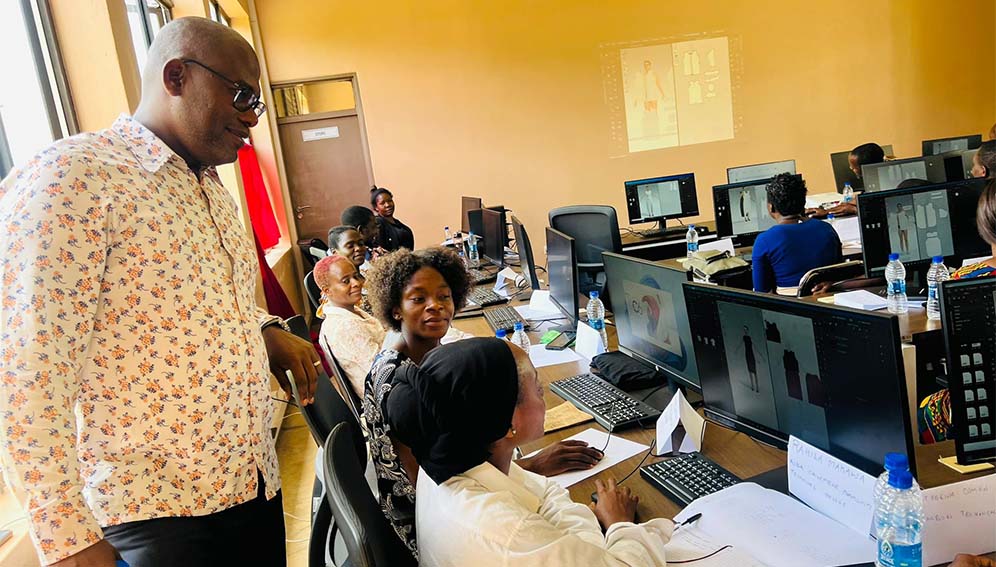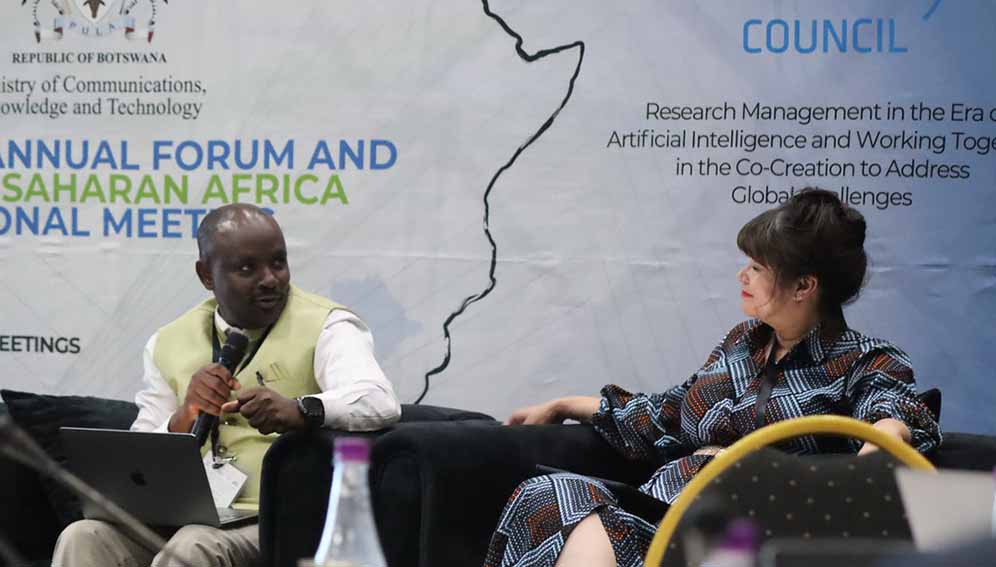SGCI News
Professor Anicia Peters, CEO of the National Commission on Research Science and Technology in Namibia was interviewed during the 2024 Annual African Science Granting Councils Meeting in Gaborone, Botswana. Professor…
Professor Anicia Peters, CEO of the National Commission on Research Science and Technology in Namibia was interviewed during the 2024 Annual African Science Granting Councils Meeting in Gaborone, Botswana.
Professor Anicia Peters, CEO of the National Commission on Research, Science, and Technology (NCRST) in Namibia, underscores the importance of flexible research funding that adapts to changing national priorities. She highlights key areas for focus: food security, energy, and rare earth mineral beneficiation. To build a robust funding framework, she identifies three critical factors—broad funding themes, cross-country collaboration, and capacity building.
Key Initiatives
To drive innovation, Namibia has joined the newly established African Innovation Agencies network, which connects agencies across the continent. This initiative promotes startup incubation, capacity building, and knowledge exchange, accelerating Africa’s innovation and development.
Through NCRST, Namibia supports research in key areas, including healthcare AI, food systems, waste management, biomass, and green technologies. Leveraging the Science Granting Councils Initiative (SGCI), NCRST funds projects like AI-powered diagnostic tools for early disease detection, improving healthcare outcomes.
Building Partnerships
Namibia has signed a Memorandum of Understanding (MOU) with Zambia and Zimbabwe to co-fund and implement joint research projects. Strengthening intra-African collaboration is crucial to developing sustainable research ecosystems and reducing reliance on North-South partnerships.
Professor Peters notes that small seed grants can help attract further investment and expand partnerships. However, she stresses that African governments must commit financial resources to ensure equitable participation in global research collaborations.
Increasing Visibility & Global Influence
The Professor says investment in research enhances national confidence and attracts global funders. She said Namibia has gained visibility at the United Nations, African Union, and international forums and has positioned itself as a key player in science, technology, and innovation.
Professor Peters co-chairs the AU’s Fourth Industrial Revolution (4IR) working group, helping shape Africa’s Artificial Intelligence (AI) and technology strategy.
Outlook & Priorities
She highlights the importance of strengthening SGCIs through financial planning, co-financing, and expert exchange programs. She also discussed the need to leverage AI and 4IR technologies in areas like green hydrogen and healthcare. Expanding internal and national policy advisory capabilities.
What were her expectations from the meeting in Gaborone? She hoped to secure financial commitments for Phase 3 of the SGCI. Planning future partnerships was a key priority, and strengthening institutional frameworks for research and innovation was another.
Watch the full interview to hear Peters’s insights on strengthening institutional frameworks for research and innovation.
Related News
The TWAS-DFG 2026 cooperation visits programme call is now open.
The call is now open for the TWAS-DFG Cooperation Visits Programme for Sub-Saharan Africa. The programme is a collaborative effort between The World Academy of Sciences (TWAS) and the Deutsche Forschungsgemeinschaft (DFG, German Research Foundation) to foster international scientific partnerships. The TWAS-DFG programme provides postdoctoral…
Uniting Malawi’s innovators: NCST’s push to bridge the coordination gap
How does Malawi move from pockets of innovation to a truly connected national ecosystem? In this interview with the Science Granting Councils Initiative, Isaac Chingwota, acting director for Technology Transfer, Innovation and Commercialisation at the National Commission for Science and Technology (NCST), explains why coordination…
Namibia launches BOOSTUP programme to bridge innovation gaps
Many promising technology-driven ideas struggle to progress beyond the concept stage due to limited access to early-stage support and mentorship. These challenges highlight the need for targeted interventions that could transform innovative ideas into viable and scalable solutions. It is against this backdrop that the…
SGCI funded projects
Rwanda’s integrated approach to sustainable agriculture and nutrition
Project Titles & Institution Areas of Research Number of Projects being funded Project Duration Grant Amount In-Kind Distribution Council Collaboration with other councils





